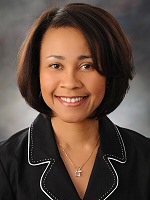The Organized Lawyer (Carolina Academic Press, 2009)
By Kelly Lynn Anders
Working in the field of law requires the management of an enormous amount of information, a skill seldom addressed in law school. We’re tuned in, online, hooked up, and essentially accessible 24 hours a day— and challenges with information overload only promise to increase. However, unlike other professions, lawyers cannot simply choose one method of communication or information storage over all others because the law is practiced in all forms due to tradition and necessity. As a result, records must be kept in print, electronically, and in various forms of the two.
Like the law, organization is a topic with many layers and nuances, and it impacts us all a little differently. We know what it looks like, but it takes time, honesty, and effort to achieve. Similarly, lawyers know how to define the law and what an effective law entails, but they also realize that these same laws took a lot of time and effort to get on the books, and they will continue to be reevaluated and fine tuned over time. Like good organizational skills, the creation and practice of law are a process. When combined, law and organization together make better lawyers, happier clients, and result in fewer complaints of malpractice or other violations of the Code of Professional Responsibility.
No one expects to see a space that is entirely clutter-free, but most people feel more comfortable in an office that offers a clean chair, small space to lean or set down personal items, and surroundings that demonstrate control over one’s workload. When a client comes to you for help, he or she wants to feel like you can handle it. How can they be expected to trust you with life-impacting decisions when you don’t appear to have control of your own affairs? That may sound harsh, but perceptions matter— especially in the legal profession.
The Organized Lawyer is designed to address the needs of all types of lawyers – corporate, nonprofit, government, law firm, academic, and solo practitioners. Whether you’re in a cubicle, corner office, or working out of your home, this book will help you develop and maintain a more organized space. It also provides guidance on all areas of professionalism. Learn more and read reviews at www.theorganizedlawyer.com.
[adrotate banner=”9″]
 |
Kelly Lynn Anders, J.D. has early 20 years of experience in writing, editing, publication design, media relations, and strategic communications in the education, government, nonprofit, and corporate sectors. She has taught courses at the Art Institute of Colorado, University of Denver College of Law, McGeorge Law School, Washburn University School of Law, and the University of Nebraska at Omaha.
Before joining Creighton, Anders was the Associate Dean for Student Affairs and Director of the Externship Program at Washburn University School of Law. She earned a bachelor’s degree in Journalism (with minors in Art, French, and History) from the University of Nebraska, and a juris doctorate from Pepperdine University School of Law. She is certified in dispute resolution from Pepperdine’s Straus Center for Dispute Resolution. Anders is the author of The Organized Lawyer (Carolina Academic Press, 2009), and is a former reporter for the Omaha World-Herald. She was the 2009-2010 Chair of the Kansas Bar Association’s Diversity Committee, and published a monthly column on diversity issues in the Kansas Bar Journal. She is a member of the American Bar Association’s Consortium on Professionalism Initiatives, the ALI-ABA Diversity Advisory Committee, the Diversity Subcommittee of the Nebraska Minority Justice Committee, and is a former Vice Chair of the American Bar Association’s Committee on Visual and Dramatic Works. Previous board memberships include Colorado Lawyers for the Arts, Opera Colorado, and the Topeka Performing Arts Center. Anders was recognized among “Forty under 40” by the Denver Business Journal in 2001, and she is a member of the 2006 class of Leadership Topeka. She currently serves as a member of the editorial boards of Court Review and The Nebraska Lawyer, and has published articles in the South Texas Law Review, Oklahoma City University Law Review, New York Law Journal, Kansas City Daily Record, National Law Journal, State Legislatures, The Legislative Lawyer, and the Journal of Public Policy and Marketing. A full list of publications and presentations may be found here. |







